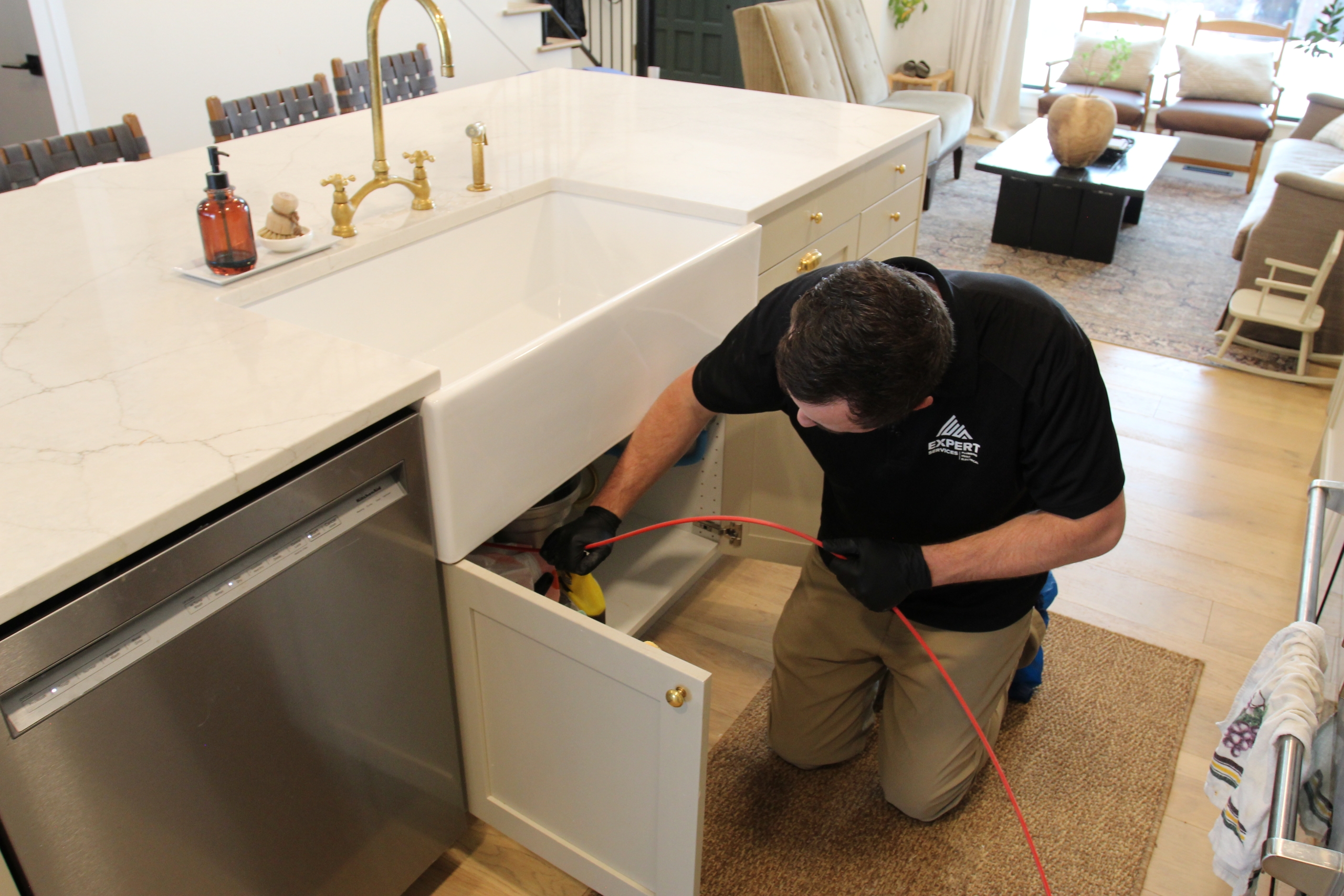Clogged drains are a common issue faced by many homeowners. They can be caused by various factors, from hair buildup to foreign objects lodged in the pipes. Understanding the root cause of a clog is the first step in addressing the problem effectively. When left unattended, clogged drains can lead to more severe plumbing issues, including unpleasant odors, slow water drainage, and even water damage.
Identifying the Cause of the Clogged Drain
Understanding what causes a clogged drain is crucial in solving the problem effectively. Many common household items and substances can cause clogs.
- Hair Buildup: Hair is one of the most common causes of clogged drains, especially in bathrooms. Hair can accumulate over time, getting stuck in the drain and creating a blockage.
- Food Particles: In kitchen sinks, food particles can cause clogs. Grease, oil, and small bits of food can form stubborn blockages that are tough to remove.
- Soap Scum: Soap residue can combine with minerals in the water to form soap scum, which can build up in the pipes and restrict water flow.
- Foreign Objects: Items like small toys, jewelry, or other foreign objects accidentally dropped down a drain can cause major blockages. These objects can completely obstruct the flow of water.
Identifying the cause of the clog will help you choose the right method to clear it. Once you know the culprit, you can take steps to prevent it from happening again in the future.
DIY Solutions for Minor Clogs
You can solve minor clogs on your own with a few simple tools and techniques. Here are some effective DIY solutions for minor clogs:
- Plunger: A plunger is a handy tool for unclogging drains. Use a cup plunger for sinks and a flange plunger for toilets. Ensure a tight seal and plunge up and down to generate enough force to dislodge the clog.
- Baking Soda and Vinegar: This natural remedy can help break down minor clogs. Pour a cup of baking soda into the drain, followed by a cup of vinegar. Let it sit for 15 minutes, then flush with hot water.
- Drain Snake: A drain snake, also known as a plumber’s auger, is effective for removing hair and other debris. Insert the snake into the drain and twist the handle to catch the clog. Pull out the snake and dispose of the clog.
- Boiling Water: For grease clogs, boiling water can be effective. Boil a pot of water and pour it slowly down the drain in three stages, allowing the hot water to work on the grease in between each pour.
These DIY solutions can handle most minor clogs. If these methods don’t work or the clog keeps returning, it may be time to call our professionals for assistance. Our technicians are equipped to handle more severe clogs and ensure your drains are clear.
When to Call Our Professionals
Sometimes, a clogged drain is beyond what DIY solutions can handle. Knowing when to call our professionals is crucial for avoiding further damage and ensuring efficient resolution.
- Persistent Clogs: If you’ve tried multiple DIY methods and the drain remains clogged, it’s time to call our experts. Persistent clogs may indicate a more serious problem deeper in the plumbing system.
- Slow Draining: Consistently slow-draining water, even after using a plunger or drain snake, suggests a blockage that requires professional attention. Our professionals have the expertise and tools to clear the blockage effectively.
- Unpleasant Odors: Foul smells coming from your drains can indicate trapped debris or a more serious issue within the sewer line. Professional intervention is needed to identify and resolve the source of the odor.
- Recurring Clogs: If you experience clogs regularly, it’s more than a minor inconvenience. Recurring clogs might signal problems with your pipes that need professional diagnostics and repairs.
Calling in our technicians ensures a thorough inspection and professional-grade solutions. We can diagnose underlying issues and provide lasting repairs, preventing further clog-related problems.
Preventive Measures to Avoid Future Clogs
Taking preventive measures can help you avoid the hassle of dealing with clogged drains. Implementing these steps can keep your plumbing system running smoothly:
- Regular Cleaning: Periodically clean your drains with safe, non-corrosive solutions. Using baking soda and vinegar or enzymatic drain cleaners can help maintain clear pipes.
- Use Drain Covers: Install drain covers or screens to catch hair, food particles, and other debris. These simple devices can prevent clogs by keeping foreign objects out of your drains.
- Proper Disposal: Avoid pouring grease, oil, or coffee grounds down the kitchen sink. Dispose of them properly in the trash or compost. In the bathroom, discard wipes, cotton balls, and other non-dissolvable items in the waste bin.
- Hot Water Flush: Regularly flush your drains with hot water. This helps dissolve any build-up and keeps the pipes clear.
- Educate Household Members: Ensure everyone in your household understands what should and shouldn’t go down the drains. Proper usage helps prevent clogs from forming in the first place.
By following these preventive measures, you can significantly reduce the likelihood of experiencing clogged drains. Keeping your plumbing in good shape not only ensures a smooth-running household but also saves you from potential repair costs.
Conclusion
Clogged drains can cause significant inconvenience and potential damage if not addressed promptly. Understanding the causes, applying effective DIY techniques, and knowing when to call our professionals can make a huge difference in maintaining a healthy plumbing system. Preventive measures further ensure that your drains remain clear and functional.
For complex or persistent issues, trust our experts at Expert Services – Plumbing, Heating, Air & Electrical. Our professionals are equipped with the skills and tools needed to resolve clogs efficiently and prevent future problems. Don’t let a clogged drain in Lehi, UT disrupt your home. Contact us for reliable and comprehensive plumbing solutions today.
